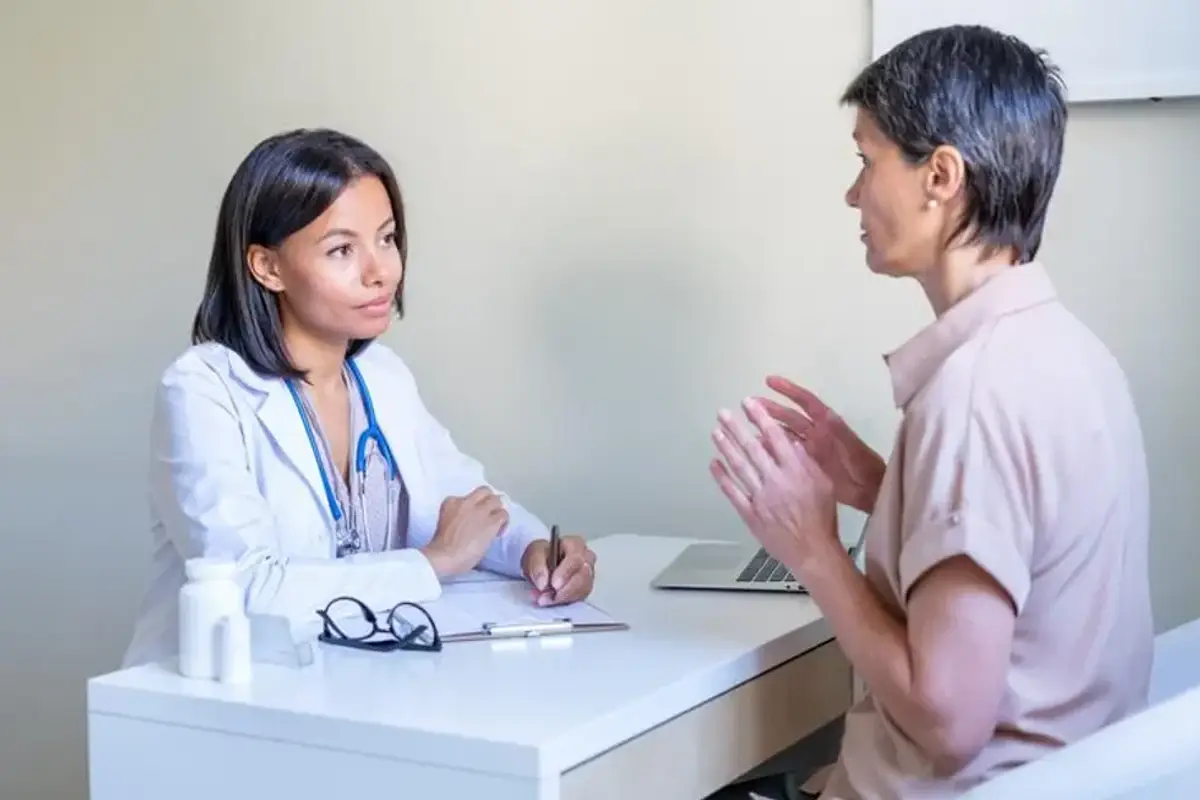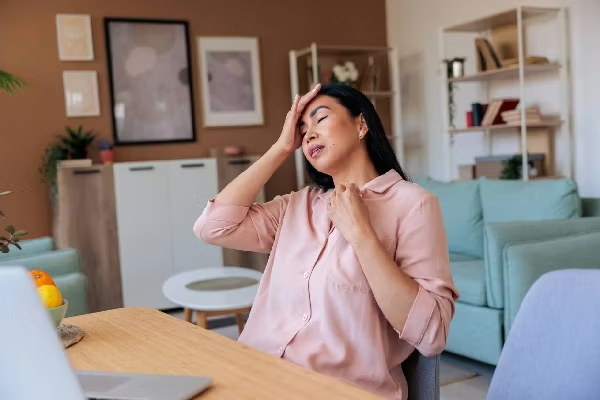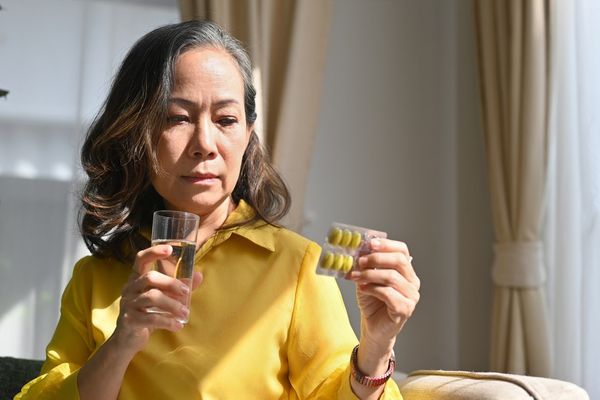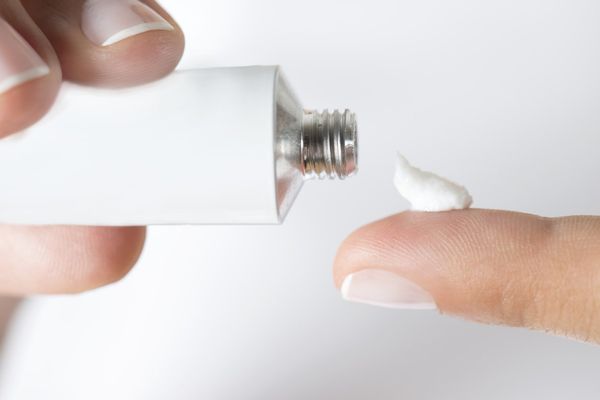If you’re over 50 and sex has become less pleasurable, or even painful, you’re not imagining it — and you’re far from alone. According to Sheryl Kingsberg, Ph.D., chief of behavioral medicine in the OB-GYN department at University Hospitals Cleveland Medical Center and a member of HealthyWomen’s Women’s Health Advisory Council, this is probably vaginal atrophy, which means thinning or loss of vaginal tissue. Vaginal atrophy (also sometimes referred to as atrophic vaginitis) is now called genitourinary syndrome of menopause (GSM) because it can affect more than just vaginal tissue — and it’s very common during menopause.
Between 55% and 70% of women experience GSM after menopause. But, because it can be difficult to bring up sexual symptoms with healthcare providers (HCPs), friends or family members, it’s often misunderstood. Kingsberg spoke with HealthyWomen to address our fears, correct our assumptions and shed light on this under-discussed topic.
And the topic should be discussed, Kingsberg said, because the biggest myth about vaginal atrophy is that women have to suffer through it. “GSM can be treated effectively,” Kingsberg said. “This doesn’t have to signal the end of your sex life.”
What is GSM or vaginal atrophy?
The term vaginal atrophy was changed to GSM because it can affect the whole pelvic area, including the vulva, clitoris, vagina, bladder and urethra. The condition describes the changes that occur in any of these areas because of loss of the hormone estrogen that happens during menopause. Estrogen supports our sexual and vaginal health.
What is the cause of GSM?
GSM is caused by the loss of estrogen at menopause. The drop in estrogen causes vaginal tissue to become thinner and vaginal dryness to occur. Lack of estrogen also changes the vaginal pH, causing a decrease in good bacteria (lactobacilli) and an overgrowth of bacteria that can increase the risk of urinary tract infections. Estrogen also affects a wide range of other pelvic functions.
What are the symptoms of GSM?
Not all women will develop symptoms of GSM, but if they do, the symptoms usually appear a few years after menopause. The condition can have a big effect on sexual activity. Many women first notice vaginal dryness. This can cause pain or even bleeding during sexual activity. Some women experience changes in sexual enjoyment and trouble having an orgasm. These symptoms are caused by:
- Loss of elasticity (the ability of the skin to go back to its original shape after being stretched) in the vagina
- Narrowing or shortening of the vagina
- Lack of blood flow to the vagina and clitoris during sex
Women with GSM may get more frequent urinary tract infections or, in some cases, develop incontinence — the inability to control when they urinate.
Can I prevent GSM?
Yes, you can prevent GSM with local hormone therapy (which can be prescribed based on age or early symptoms) and regular stretching of the vulvovaginal tissue through regular sexual activity or by using a dilator. If you have symptoms of GSM and are not yet postmenopausal, you can discuss these treatment options with your healthcare provider).
What are some treatment options for GSM?
Evidence-based treatments for GSM include:
- Hormone therapy
- Systemic hormone therapy is used to treat vasomotor symptoms of menopause (hot flashes and night sweats) and often will sufficiently treat GSM. However, for some women systemic HT will not be sufficient and local vaginal HT should be used.
- Low dose local hormone therapies include a variety of estrogen delivery options — vaginal creams, rings, tablets and inserts. The dose of hormones is very low and gets hormones just to the vulvovaginal tissues.
- Moisturizers and lubricants
- Moisturizers and lubricants don’t treat the underlying issue — the lack of estrogen — or the existing tissue damage, but they can help keep you comfortable.
- Vaginal moisturizers are creams that you apply regularly, two or three times a week. You don’t use them during sex.
- Lubricants may help with vaginal dryness during sex. There are a number of options to choose from. Your best bet is to use a lubricant with:
- A pH level of 3.8 to 4.5 (this matches the pH of your vagina)
- An osmolality (a fancy word for how many particles are in the lube) lower than 1200 (too high and it actually pulls moisture out of the tissue). If the label doesn’t list this, it’s probably too high.
- As few ingredients as possible. The cleaner, the better!
- Pelvic floor physical therapists specialize in providing specialized physical therapy when there is pelvic floor dysfunction. GSM can result in pain during sex and consequently, vaginismus—the involuntary tightening of the pelvic floor muscles due to anticipatory anxiety and fear of penetration. Vaginismus is a common condition for women to experience.
- Pelvic floor physical therapy to improve vaginismus may involve increasing awareness of pelvic muscles, learning relaxation techniques, increasing vaginal elasticity and tone, and providing ways to stretch the vaginal opening. Pelvic floor physical therapy may be combined with the use of vaginal dilators. Vaginal dilators can help reduce the fear and anxiety of penetration by gradually stretching the vaginal tissue and promoting pelvic floor muscle relaxation.
Who can I speak with if I think I have GSM?
If you’re experiencing pain during sex and think you might have GSM, speak with someone who has expertise in treating women who are menopausal or postmenopausal. You can visit the North American Menopause Society to find an HCP who specializes in menopause-related issues like GSM.
- What's Happening to My Vagina During Menopause? ›
- Menopause Can Be a Real Pain in the Vagina ›
- What to Know About Vaginal Dryness ›
- Talking to Your Health Care Provider About Vaginal Dryness - HealthyWomen ›
- Vaginal Symptoms of Menopause Checklist - HealthyWomen ›
- Vaginal Estrogen Is Safe for People with a History of Breast Cancer - HealthyWomen ›
- Menopause and vaginal dryness - HealthyWomen ›
- Symptoms of Menopause - HealthyWomen ›
- Facts About Vaginal Estrogen - HealthyWomen ›
- How To Talk to Your Healthcare Provider About Menopause - HealthyWomen ›







